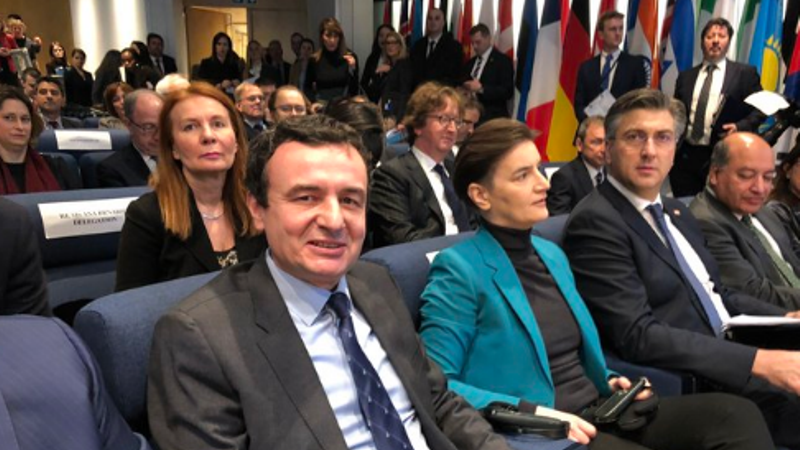
On Tuesday, Kosovo’s caretaker government of Albin Kurti lifted all tariffs on imports from Serbia and Bosnia and Herzegovina, and at the same time introduced reciprocity measures with Serbia.
The news was announced by Kurti on live television during an interview with KTV.
Reciprocity measures mean that the government will apply to Serbia the same policies Serbia applies to Kosovo.
Serbia does not recognize Kosovo and since the country declared independence in 2008, it has put in place a number of tariff and non-tariff barriers, which Kosovo claims are in violation of the Central European Free Trade Agreement (CEFTA), of which both countries are signatories.
Kosovo companies face problems with custom procedures, technical trade barriers, certificates and bureaucracy on the Serbian side of the border, according to a report by Gap Institute think tank.
Companies and citizens are required to get temporary Serbian plates for cars when they enter the country, and driving through to the EU border gets often arduous by the Serbian authorities. Kosovo’s food and sanitary certificates also not recognized. Movement of people is often restricted as Serbia does not recognize professional qualifications like diplomas and licenses issued in Kosovo, or even driving licenses and several other documents.
Outgoing Prime Minister Kurti stated that starting from April 1, Kosovo will gradually start to introduce reciprocity measures toward Serbia, which are expected to include all these matters at some point in time.
The decision was approved by a majority of ministers, meaning that coalition partner LDK’s ministers most probably did not vote.
It comes after Kosovo lifted tariffs for raw materials ten days ago. Both decisions are in line with Kurti’s previous proposal to replace tariffs with reciprocity if Serbia did not stop its campaign to undermine Kosovo’s statehood. This plan was opposed by the US administration, and consequently by LDK.
Tariffs on Serbian goods were imposed in November 2018 by the government of Ramush Haradinaj, following Serbia’s years successful lobbying with countries to withdraw their recognition of Kosovo and block its membership in international organizations.
Kurti’s LVV party and their coalition partner LDK campaigned for the lifting of tariffs and for imposing reciprocity measures.
However, in less than two months LDK left the coalition due to Kurti’s disagreement with the US administration‘s approach that his government drop tariffs immediately and unconditionally, with no measures of reciprocity toward Serbia.
Under the US administration and President Trump’s envoy Richard Grenell’s pressure on the government, LDK opted against implementing the governing coalition’s program regarding tariffs and reciprocity, and initiated a motion that brought to the collapse of the government.
The EU chief diplomat Josep Borrell was the first high foreign official to react to Kurti’s decision on Tuesday night:
- US Envoy Richard Grenell: I Don’t See Land Swap Between Kosovo and Serbia As An Option
- North Macedonia Becomes 30th NATO Member

